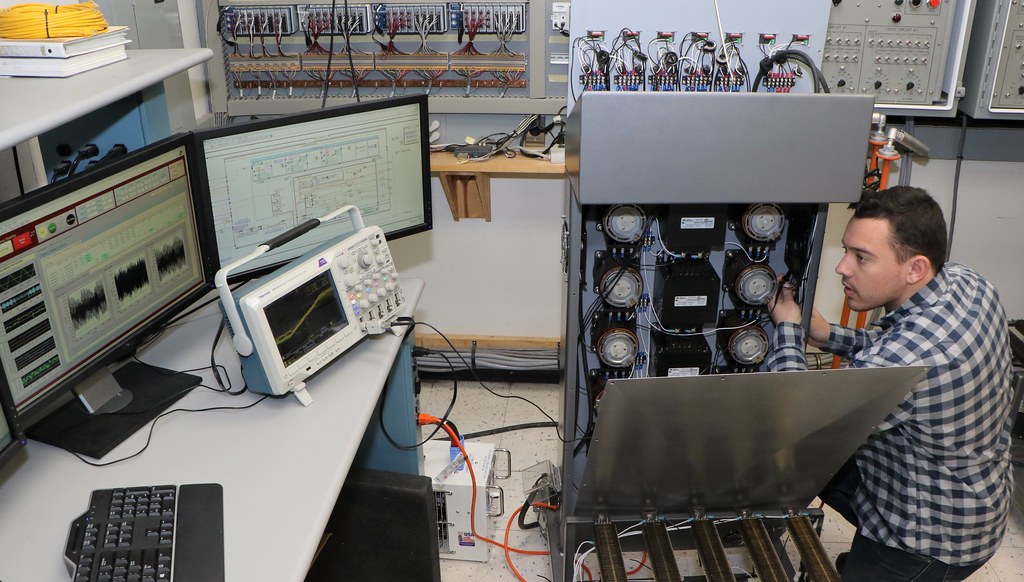Table of Contents
Introduction
Becoming an electrical engineer in India is a rewarding and promising career path. Electrical engineers are at the forefront of technological advancements and play a vital role in various industries, from power generation to telecommunications. If you have a passion for problem-solving, a strong foundation in science and mathematics, and a desire to contribute to the advancement of society, pursuing a career as an electrical engineer might be the right choice for you. In this article, we will guide you through the steps and requirements to become a successful electrical engineer in India.
Understanding Electrical Engineering
Electrical engineering is a field that deals with the study, design, and application of electrical systems and devices. Electrical engineers are responsible for developing and maintaining a wide range of electrical equipment used in various sectors. They work with power generation, distribution systems, electronics, telecommunications, and much more.
Educational Requirements
To become an electrical engineer in India, one must first complete their high school education. It is essential to focus on science subjects such as Physics, Chemistry, and Mathematics during this period. After completing high school, aspiring engineers need to pursue a Bachelor’s degree in Electrical Engineering.
Entrance Examinations
Admission to reputable engineering colleges and universities is highly competitive. Students are required to appear for entrance examinations like JEE Main and state-level exams. Scoring well in these exams is crucial to secure a seat in a prestigious institution.
Pursuing a Bachelor’s Degree
During their undergraduate program, students will delve into various core subjects related to electrical engineering. They may also have the opportunity to choose specializations like power systems, electronics, or telecommunications. Engaging in internships and gaining practical experience will further enhance their skills and knowledge.
Gaining Practical Experience
Practical experience is an integral part of an electrical engineer’s journey. Students can opt for industrial training and apprenticeships to apply theoretical concepts to real-world scenarios. This exposure not only improves their technical skills but also provides valuable industry insights.
Higher Education and Postgraduate Degrees
For those aspiring to specialize further or enter research, pursuing a master’s degree in electrical engineering is a logical step. Some individuals might even consider pursuing a Ph.D., which opens up avenues for advanced research and academic positions.
Certifications and Skill Development
Apart from formal education, obtaining relevant certifications and attending skill enhancement workshops can significantly boost an electrical engineer’s credibility. These certifications validate their expertise in specific areas and make them more employable.
Building a Strong Portfolio
Personal projects and research papers play a crucial role in showcasing an engineer’s talent and passion. By working on innovative projects and contributing to research, aspiring engineers can make their mark in the industry.
Joining Professional Organizations
Joining professional organizations and engineering societies not only adds to an engineer’s professional network but also provides access to valuable resources and industry updates.
Job Opportunities
Electrical engineers have diverse employment opportunities. They can work in the government sector, private companies, or even start their own ventures. The demand for skilled electrical engineers is high across industries.
Salary Outlook
Electrical engineering is a well-paying profession. Entry-level salaries might vary, but with experience and expertise, engineers can earn lucrative packages.
Challenges Faced by Electrical Engineers
Electrical engineers encounter challenges in keeping up with rapid technological advancements and addressing environmental concerns related to energy consumption and sustainability.
Future Trends in Electrical Engineering
The future of electrical engineering looks promising, with a focus on renewable energy, the integration of IoT in power systems, and the application of AI in electrical devices and processes.
Conclusion
Becoming an electrical engineer in India requires dedication, hard work, and a passion for technology. By completing the necessary education, gaining practical experience, and continuously upgrading skills, aspiring engineers can build a successful and fulfilling career in this field.
FAQs
Q: What are the educational requirements to become an electrical engineer in India?
A: Aspiring engineers need to complete their high school education and pursue a Bachelor’s degree in Electrical Engineering.
Q: Are there entrance examinations for engineering courses in India?
A: Yes, students need to appear for entrance examinations like JEE Main and state-level exams to secure admission to reputed institutions.
Q: What are the career opportunities for electrical engineers in India?
A: Electrical engineers can find employment in the government sector, private companies, and even start their own ventures.
Q: What is the future outlook for electrical engineering?
A: The future looks promising with a focus on renewable energy, IoT integration, and the application of AI in electrical devices.
Q: How can electrical engineers stay updated with the latest industry trends?
A: Joining professional organizations and attending workshops can help engineers stay informed about industry updates and advancements.




